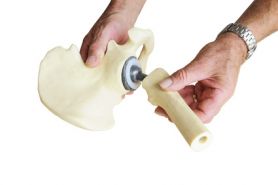Failure Analysis
The Art & Science of Materials Failure Analysis
When your product or process fails, you need more than just test results. You need to know the cause of your problem and how to implement a solution. Cambridge Polymer Group collects and analyzes data on your materials failure, to discover not only what went wrong, but also how to fix it.
Determining the root-cause of a manufacturing issue or device return can be complicated. Frequently, failure analysis relies more on experience than on easily recognized identifiers. The cause is often more complex than one simple failure mode and therefore understanding all of the phenomena involved is critical for determining how and why a process occurred. Factors originating in material selection, part or process design, polymer processing or part assembly, sterilization, and end-use service environment can all contribute to unanticipated failures.
CPG’s multi-disciplinary experts and their decades of experience in medical and consumer products provide a unique resource both for determining the failure of your material and for restarting your production process.
When Good Polymers Go Bad – Plastics & Polymers Failure Analysis
Cambridge Polymer Group laboratory scientists investigate your polymers, fibers, films, membranes, composites, rubbers, coatings or paints to characterize the mode of your material’s failure.
Common plastic and polymer failures include:
- Fracture
- Creep
- Warping
- Adhesive bond strength issues
- Trace chemicals / Additives
- Composite failure
- Design flaws
- Contaminants / Inclusions
- Environmental stress cracking
- Noxious smell
- Color change
Failure Analysis Techniques
Depending on the nature of your problem, our laboratory investigation may include a number of analytical techniques, ranging from electron microscopy of fracture surfaces to manufacturing residue analysis to custom accelerated aging or reliability testing.
CPG can bring a wide array of non-destructive and destructive analytical methods to bear on your problem:
